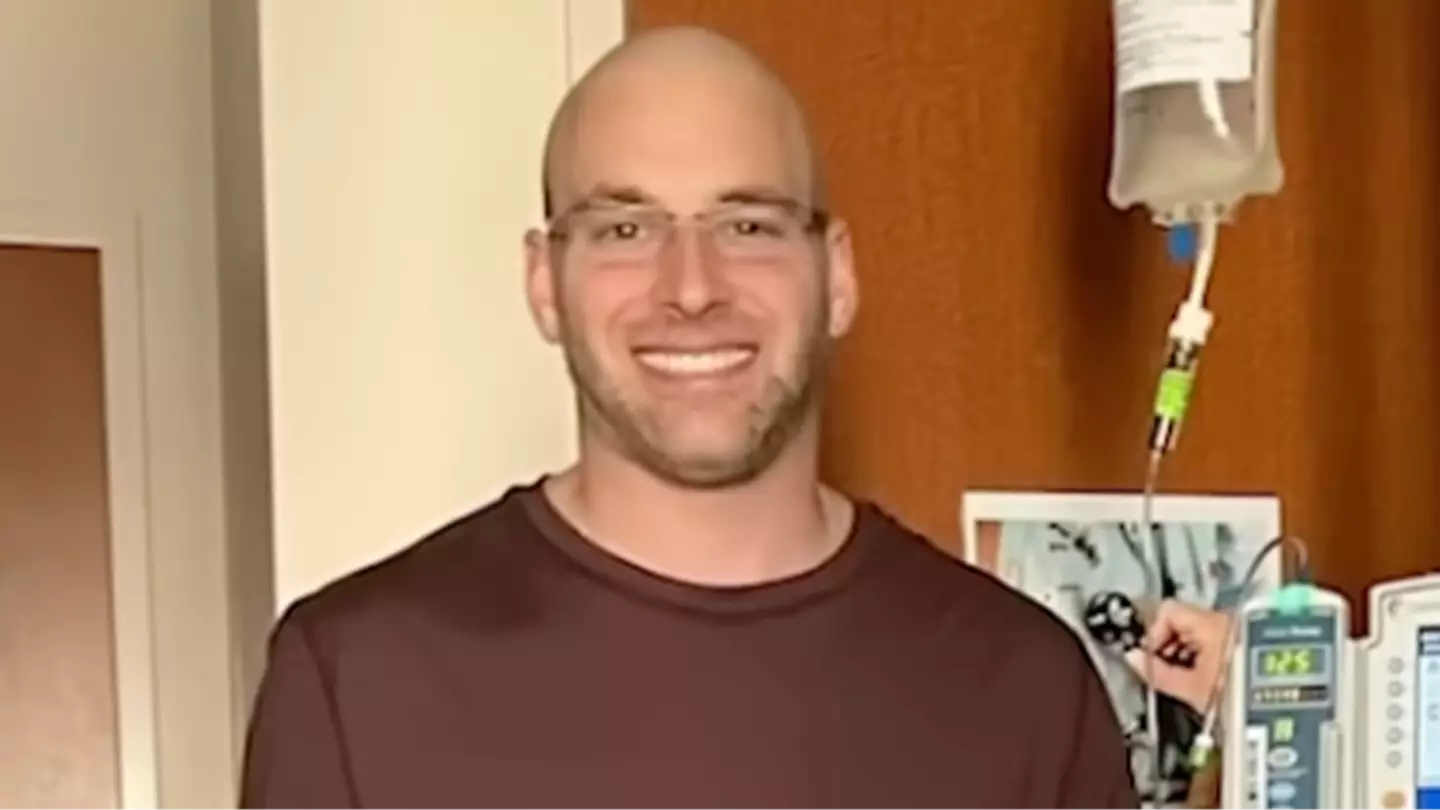A fitness enthusiast has revealed the first 'normal' symptoms he endured which ended up being cancer.
Joe Fornasiero, a fitness fanatic from Brighton, Michigan, led a fit and healthy lifestyle for more than two decades when he was diagnosed with an extremely rare cancer, Desmoplastic Small Round Cell Tumor (DSRCT).
The cancer is so rare in fact that fewer than 1,000 people in the US have been diagnosed, according to the US Department of Health and Human Services.
Now speaking to The Patient Story on YouTube, Joe is keen to spread awareness about some of the unusual symptoms he's had and the tough journey he's been on so far.
Advert
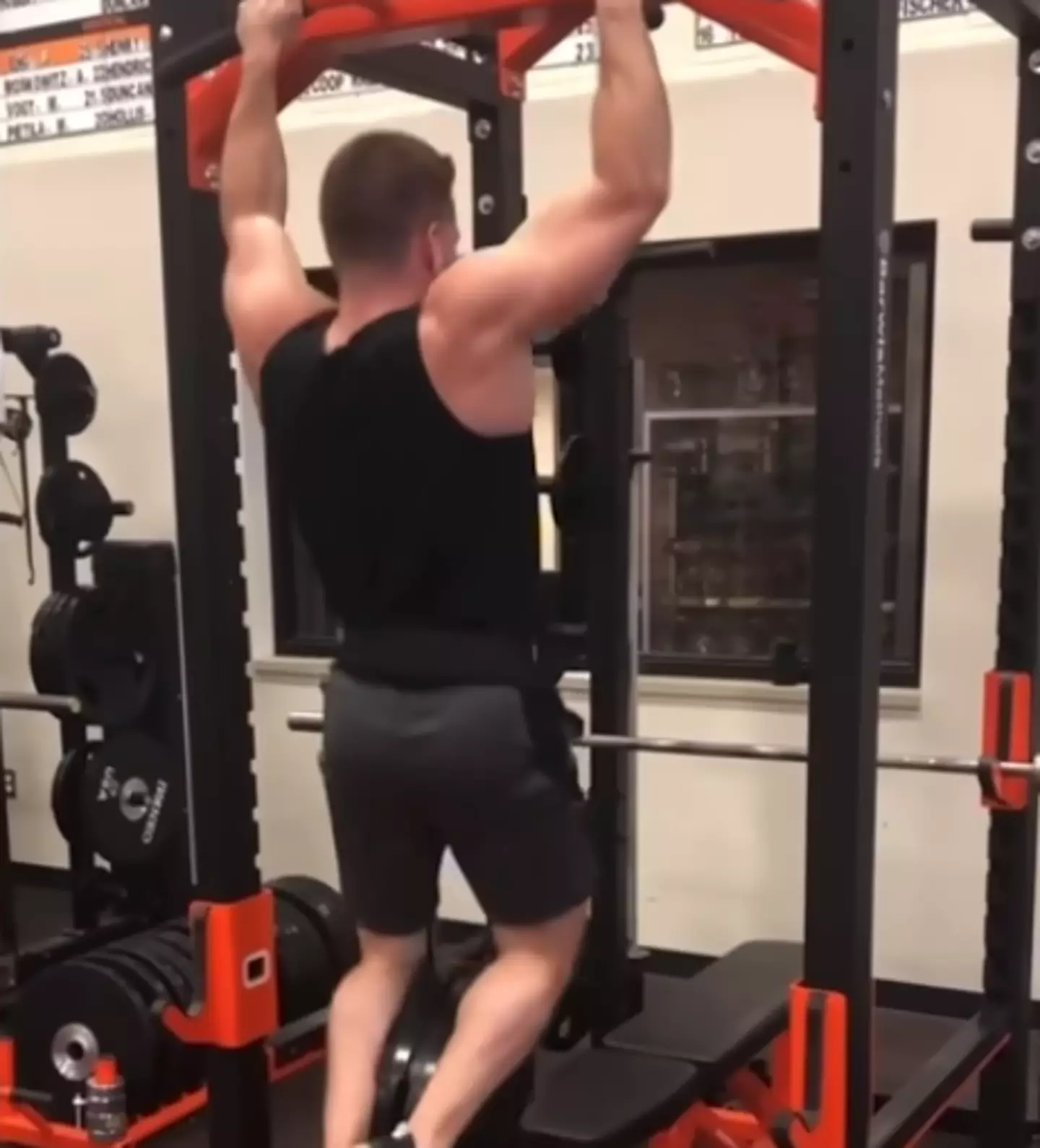
Joe said the very first symptoms he struggled with were 'mild' abdominal pain in the lower left quadrant of his abdomen and general fatigue.
It was only when he had a hernia surgery for a decade-old weightlifting-related injury in February 2022 that doctors noticed something amiss.
They found a 'small benign tumor,' Joe said, but told him not to worry about it.
However, he said he had 'slight stabbing pain' in the same area for weeks after, that he said was a 'six out of 10 on the pain scale.'
After taking himself to the ER, he had a CT scan, where things went from bad to worse.
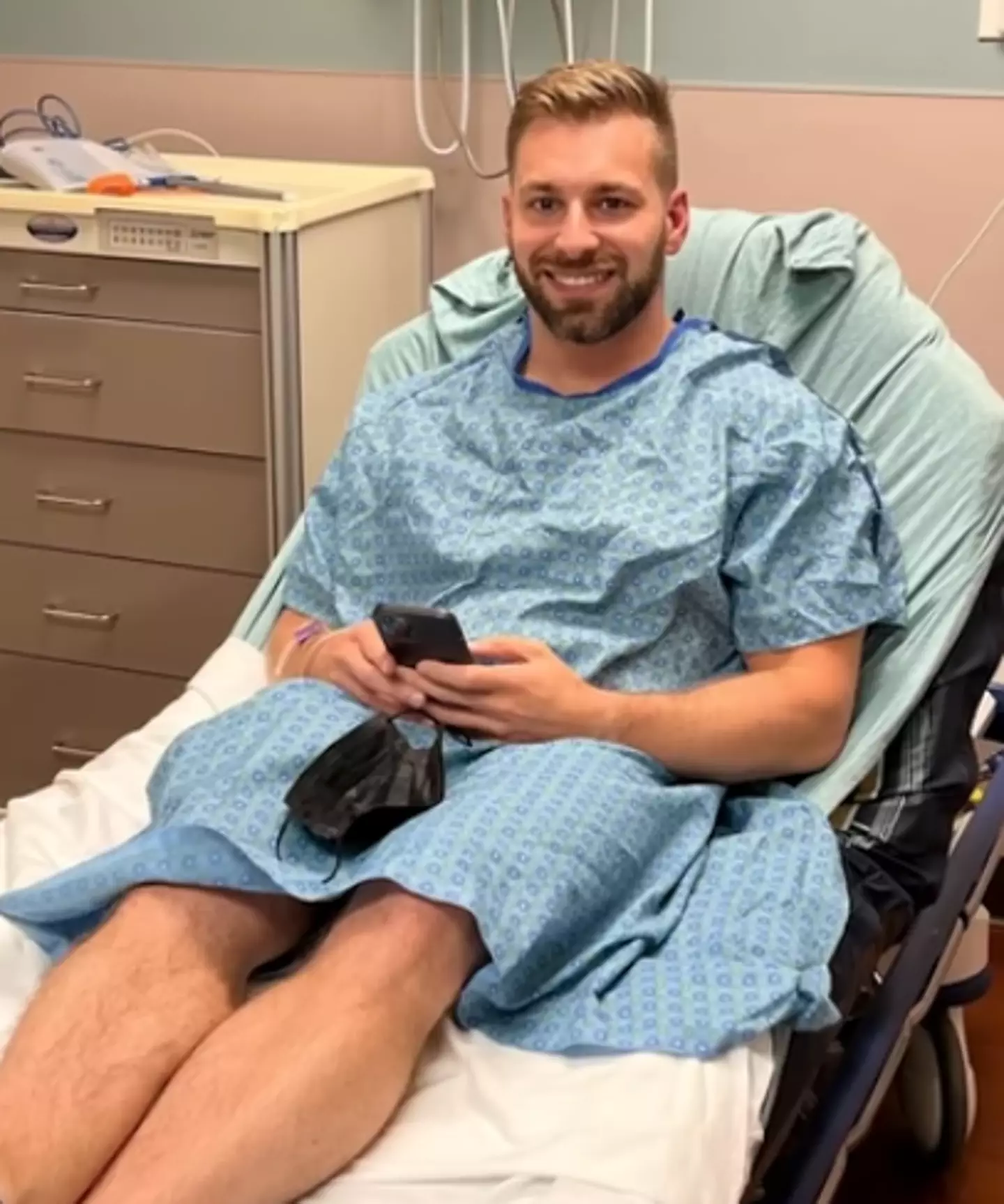
A physician who 'looked like she had seen a ghost' dropped the bombshell on him: that they found multiple tumors in masses across his abdomen and pelvis.
"I [had] walked into the building, the healthiest person I knew. I've eaten healthy for years. I've exercised for over two decades. And yet here I am, walking out with a potential cancer diagnosis," Joe recalled. "So that was almost euphoric."
"I never would have expected that it would happen to me but I've obviously learned that cancer doesn't discriminate."
While his cancer diagnosis was confirmed, doctors were stumped over what the primary source was, with some considering it was a type of lung cancer.
While waiting for biopsy test results in August 2022, Joe went to some of the top hospitals in the world in search of answers to no avail.
Eventually, it was confirmed he had DSRCT and horrifyingly, some doctors reportedly told him they didn't know how to appropriately treat him.
Unsure what to do, Joe started on an aggressive regimen of chemotherapy which actually went smoothly.
"I attribute that to the exercise and nutrition that I focus on leading into my cancer treatment," he added.
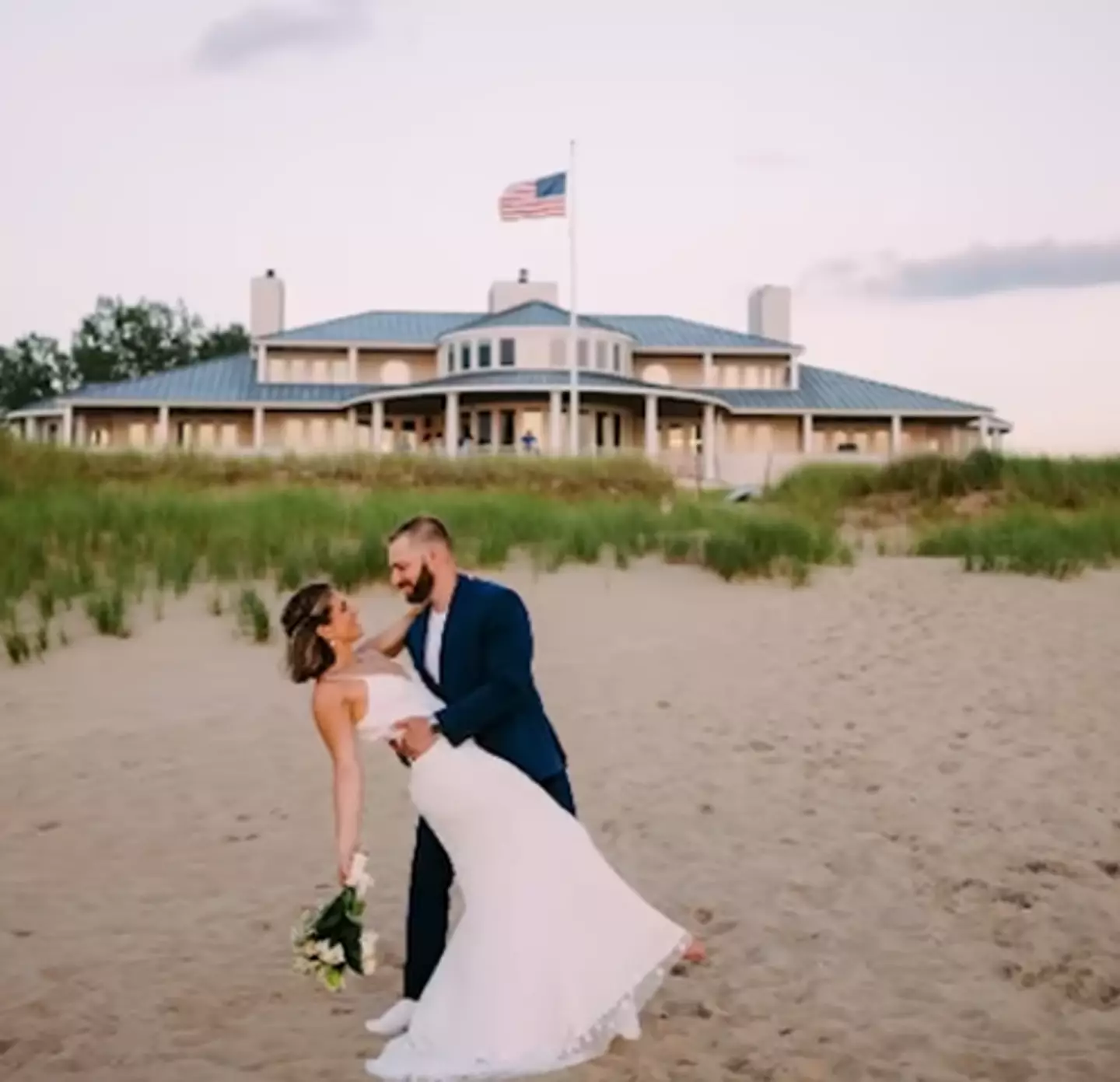
But he was then to have two gruelling 10-hour surgeries on his abdomen and chest down to his pelvis, where doctors removed lymph nodes, part of his diaphragm and his spleen from a 12 inch incision.
Although doctors considered Joe was in remission after the ordeal, Joe was sadly right to have 'doubts,' and volunteered for more chemo.
"Those were some long days, Monday through to Friday, and that was pretty taxing just from a fatigue stand point," he recalled.
Radiation therapy then came when he was sicker than ever from the treatment, to the point where even eating small meals would provoke a 'coughing fit' to the point he would vomit.
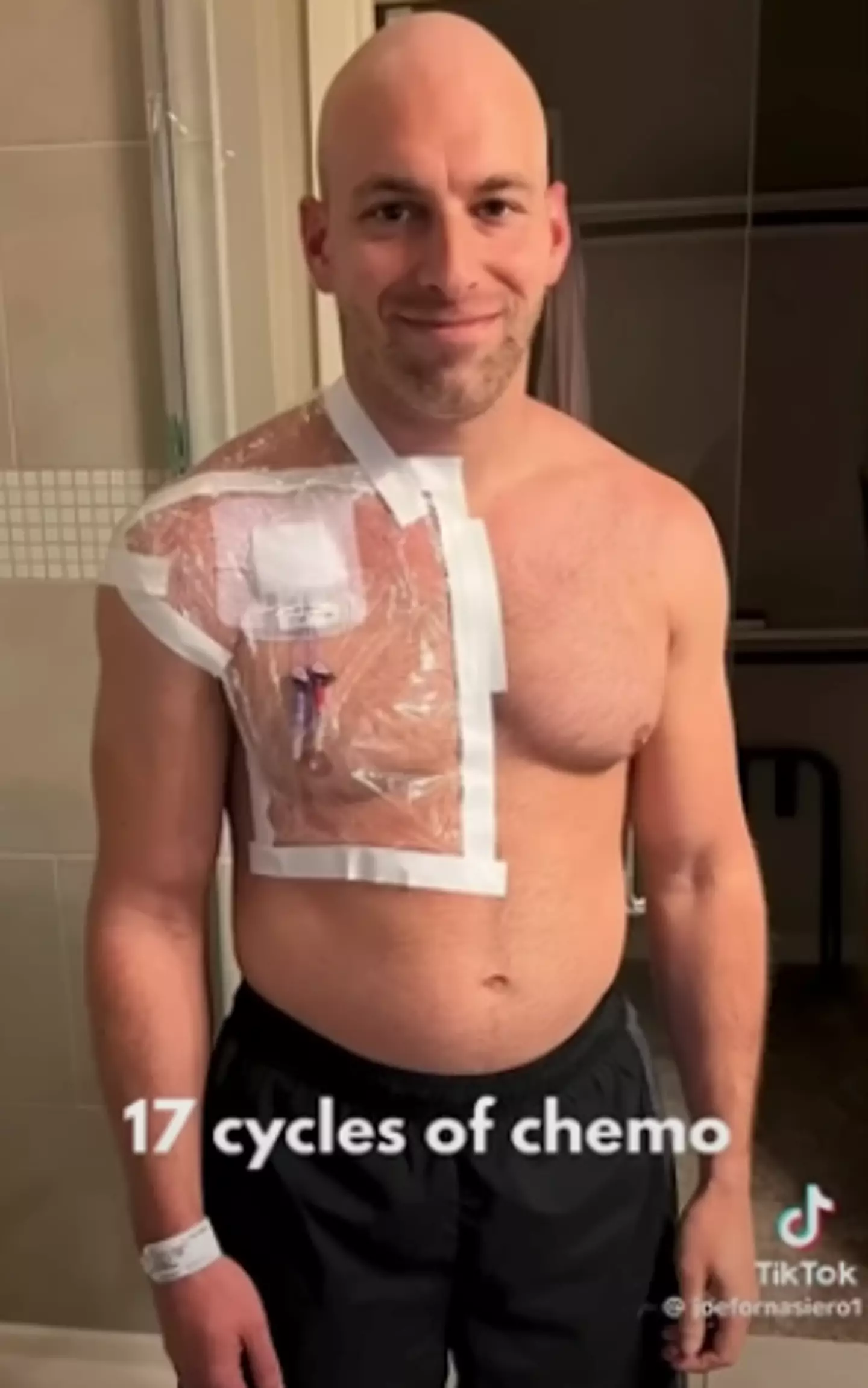
"You start to question things like, 'why am I doing this to myself?' I feel so horrible, I don't know it I want to do this anymore. But I think a lot of it comes down to just how you reframe your mind."
His Apple watch would later tip him off that he had an increased heart rate, which was later confirmed to be a 20mm blood clot in his heart and the signs of congestive heart failure.
Blood thinners, which he injected twice a day into his abdomen helped for a while, and then the cancer returned to his neck.
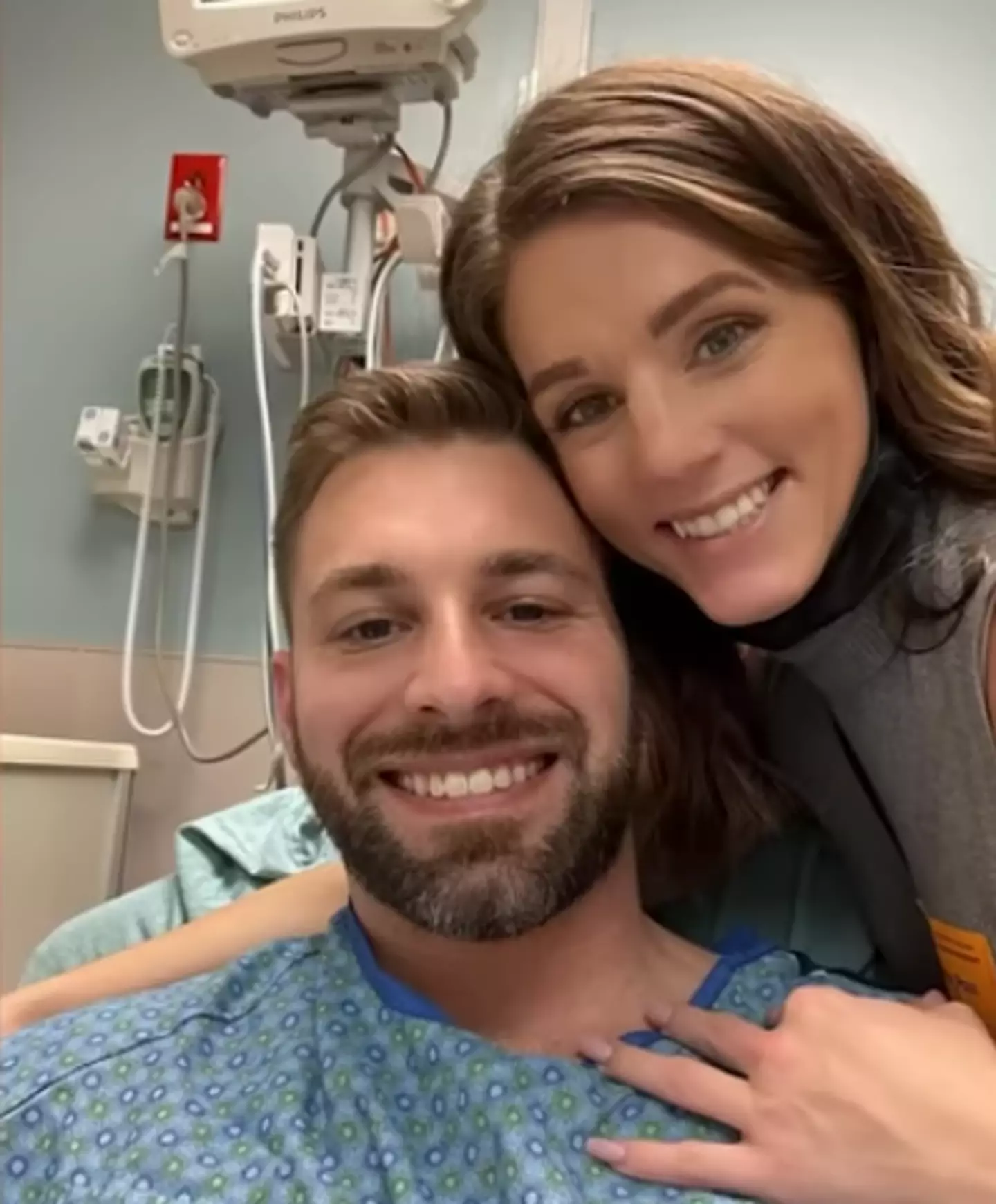
"Some of my toughest things are envisioning myself laying on my deathbed and having to say goodbye to my family, that is very emotionally taxing," Joe reflected.
And with advice for others, he added: "In any difficult diagnosis, there's always going to be statistics and they may not be in your favor but chances are there are outliers.
"The key is to make sure you are doing everything, both mentally and physically, to give yourself the opportunity to achieve the highest chance of success."
If you’ve been affected by any of these issues and want to speak to someone in confidence, contact the American Cancer Society on 1-800-227-2345 or via their live chat feature, available 24/7 every day of the year.
